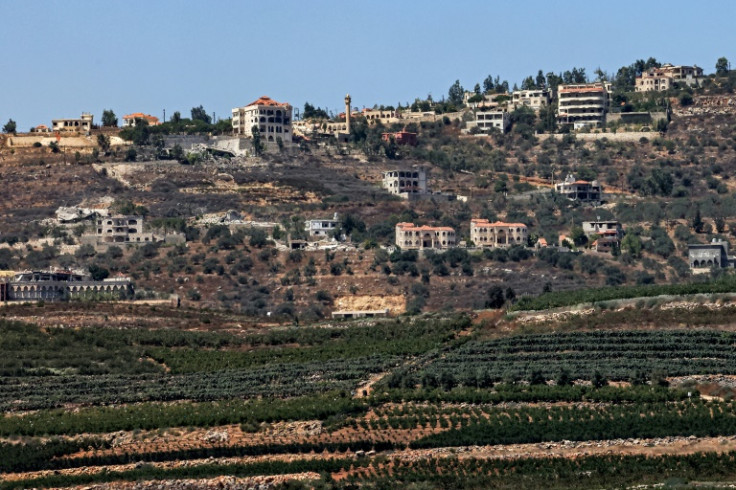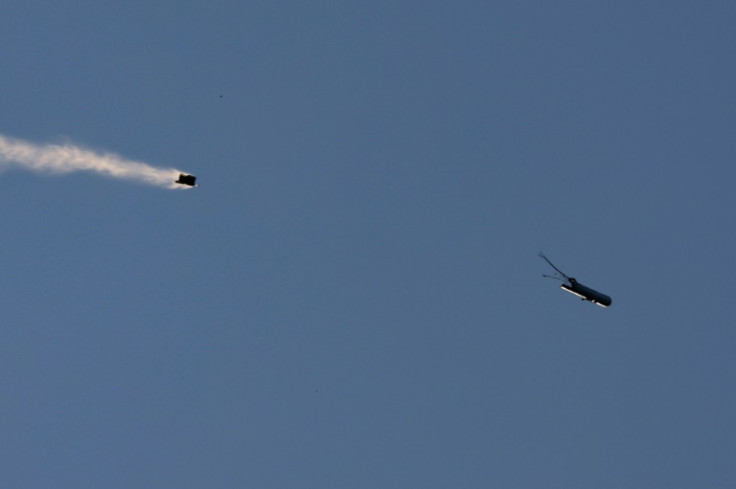Israel Striking Lebanon To Prevent 'Large-scale' Hezbollah Attack

The Israeli military launched pre-emptive strikes in Lebanon on Sunday after detecting preparations for "large-scale" attacks by the Iran-backed militant group Hezbollah.
The military also warned Israelis to expect incoming missiles and drones launched by Hezbollah, with the government declaring a 48-hour state of emergency.
Hezbollah issued a statement shortly after announcing large-scale drone and rocket launches targeting deep into Israeli territory in retaliation for the death of its military commander in an Israeli strike last month.
The United States responded by reaffirming its "ironclad commitment" to Israel's defence, and said it was "postured" to support its ally.
The Middle East had been on edge for weeks after the group and its patron Iran vowed to respond to the Beirut strike, and to the assassination in Tehran of Hezbollah ally Hamas's political leader hours later.
In a statement released shortly before 5:00 am (0200 GMT), the Israeli military said its jets were striking targets in Lebanon "that posed an imminent threat" to Israelis.
"From right next to the homes of Lebanese civilians in the south of Lebanon, we can see that Hezbollah is preparing to launch an extensive attack on Israel, while endangering the Lebanese civilians," military spokesman Daniel Hagari said in a video statement released at the same time.
He urged civilians "to move out of harm's way".
"Hezbollah's ongoing aggression risks dragging the people of Lebanon, the people of Israel, and the whole region into a wider escalation," Hagari said.
In a message addressed to the residents of southern Lebanon early Sunday morning, the Israeli military said: "We are monitoring Hezbollah's preparations to carry out large-scale attacks on Israeli territory near your homes. You are in danger. We are attacking and eliminating Hezbollah threats.
"Anyone who is near areas where Hezbollah operates should leave immediately to protect themselves and their families," the message posted on Telegram said.
Hezbollah said in a statement that it had launched more than 320 Katyusha rockets towards Israel as part of its "initial response" to top commander's Fuad Shukr's killing last month.
The group "began an air attack with a large number of drones" targeting Israeli territory, the statement said, while fighters had also targeted "a number of enemy positions and barracks and Iron Dome platforms... with a large number of rockets".
The "military operations will take some time to complete", it said.
Prime Minister Prime Minister Benjamin Netanyahu was set to hold a security cabinet meeting at 0400 GMT, his office said.
Israeli Defence Minister Yoav Gallant announced a 48-hour nationwide state of emergency from 06:00 am Sunday.
His office said in a statement that he had briefed his US counterpart Lloyd Austin on the situation, adding the "defense establishment is following developments in Beirut".
A US national security spokesman said President Joe Biden had directed US officials to "continuously" communicate with Israel, while the Pentagon said it was "postured to support" the defense of Israel.
Secretary of Defense Lloyd Austin also spoke with Gallant.
"Secretary Austin reaffirmed the United States' ironclad commitment to Israel's defense against any attacks by Iran and its regional partners and proxies," a Pentagon spokesman said.
Israel's Ben Gurion International Airport announced that flights were being delayed and diverted on Sunday morning, while the country's emergency service group said it was raising its level of alert.
Israel and Hezbollah have traded near-daily cross-border fire since the outbreak of the war in Gaza, triggered by Hamas's unprecedented October 7 attack on southern Israel last year.
Fears that the deadly exchanges could escalate into a full-scale conflict in Lebanon have only grown since Hezbollah's chief said his group was "obliged to respond" to Israel "whatever the consequences" after the Beirut strike last month that killed its military commander Fuad Shukr.
Hezbollah will retaliate "alone or in the context of a unified response from all the axis" of Iran-backed groups in the region, he added.
Shukr's killing, and that of Hamas political leader Ismail Haniyeh in Beirut hours later -- prompting fury from Hamas backer Iran as well as Hezbollah -- only served to ratchet up concerns that Israel's war against Hamas in the Gaza Strip could spiral into a broader regional conflict.
Hamas's October 7 attack on southern Israel resulted in the deaths of 1,199 people, most of them civilians, according to an AFP tally based on Israeli official figures.
Israel's retaliatory military campaign has killed 40,334 Palestinians in Gaza, according to Gaza's health ministry, which does not give details of civilian and militant deaths.
The UN rights office says most of the dead are women and children.


© Copyright AFP 2024. All rights reserved.






